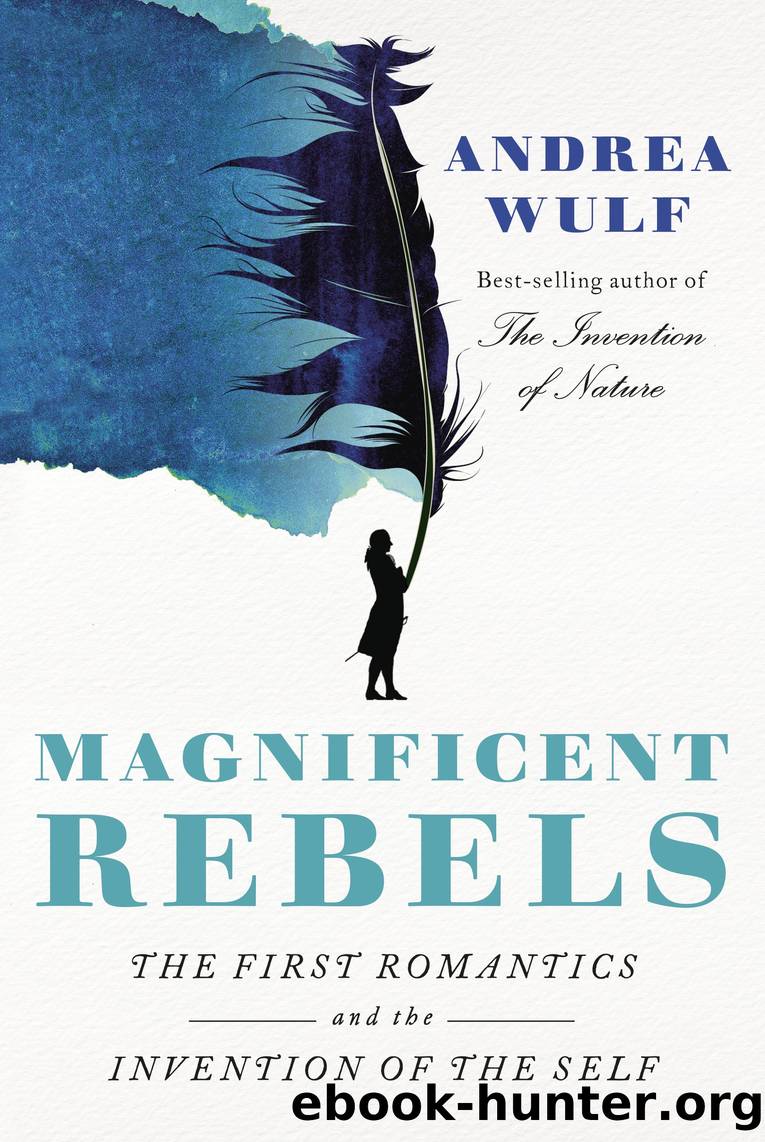Magnificent Rebels by Andrea Wulf

Author:Andrea Wulf [Wulf, Andrea]
Language: eng
Format: epub
Publisher: Knopf Doubleday Publishing Group
Published: 2022-09-13T00:00:00+00:00
* * *
During those winter months at the end of 1801 and the beginning of 1802, the fight between Schelling and Fichte rumbled on. Enraged, Fichte had written to one of the Jena professors threatening âto expose every last flawâ in Schellingâs thinking and declaring that the young philosopher had never understood the Wissenschaftslehre. Schelling was never meant to see this letter, but Jena was too small for secrets. On 25 January 1802, just as Dorothea Veit was leaving town, Schelling wrote one final letter to Fichte and after that the two men stopped corresponding.
In the same month, Schelling published an article in which he explained that his own system was a âphilosophy whole and entireâ â not a part of, not a sub-category of, and certainly not an explanation of the Wissenschaftslehre. It was an alternative. And with this, their fight moved to the public arena of journals and pamphlets. Their old adversaries enjoyed the mauling â âall we can do is let them go at each otherâs throats and flail away until they topple,â one wrote. Wasnât it fun, another said, âwhen philosophers start eating one another like starving ratsâ. What a spectacle it was to watch pupils eating their teachers, protégés their mentors, and âevery creature his own creatorâ.
At twenty-seven, though, Schelling was at the height of his fame. He had liberated himself from Fichte, his publications were read across Europe, he attracted international students, and his lectures were packed. âMany foreigners come to hear me now â graduates, military men and other people of rank, Englishmen too,â he proudly told his father. There was even a wealthy Hungarian baron who paid handsomely for private tutorials, âfilling my pockets with money and cellar with Tokay wineâ.
The auditorium was so full that the broad-shouldered Schelling often had problems getting through the crowd to his lectern. Every seat was taken and so many students stood in the aisles, in the doorway and in the corridors that there was no room. âHis lecture hall canât hold the audience any more,â Caroline told Julie Gotter, who had returned home after her nine months in Jena.
Schelling was giving a series of lectures on the âPhilosophy of Artâ, in which he united his ideas about the importance of art, previously presented in his System of Transcendental Idealism, with his concept of the Absolute as the underlying principle of the universe. âEvery artwork is the expressionâ¦of the Absolute itself,â Schelling told his students in 1802. Art was the intersection between the ideal and the real. The âPhilosophy of Artâ, Schelling said, was nothing less than the study of how art represents the universe. Music, for example, was according to Schelling the original rhythm of nature itself, while sculpture was the realised Urform of organic nature. Humans could only truly comprehend nature through the creative output of artists, not by reading scientific treatises or theories.
The students were spellbound by this âpoetry of the universeâ, as they called Schellingâs philosophy. Some of the English students, however, were less euphoric about Schellingâs professed dislike of English thinkers.
Download
This site does not store any files on its server. We only index and link to content provided by other sites. Please contact the content providers to delete copyright contents if any and email us, we'll remove relevant links or contents immediately.
| Belgium | France |
| Germany | Great Britain |
| Greenland | Italy |
| Netherlands | Romania |
| Scandinavia |
Room 212 by Kate Stewart(5087)
The Crown by Robert Lacey(4782)
Endurance: Shackleton's Incredible Voyage by Alfred Lansing(4740)
The Iron Duke by The Iron Duke(4333)
The Rape of Nanking by Iris Chang(4188)
Joan of Arc by Mary Gordon(4076)
Killing England by Bill O'Reilly(3985)
Say Nothing by Patrick Radden Keefe(3963)
I'll Give You the Sun by Jandy Nelson(3413)
Shadow of Night by Deborah Harkness(3337)
Hitler's Monsters by Eric Kurlander(3313)
Mary, Queen of Scots, and the Murder of Lord Darnley by Alison Weir(3188)
Blood and Sand by Alex Von Tunzelmann(3179)
Eleanor & Park by Rainbow Rowell(3138)
Darkest Hour by Anthony McCarten(3110)
Margaret Thatcher: The Autobiography by Thatcher Margaret(3063)
Book of Life by Deborah Harkness(2911)
Red Famine: Stalin's War on Ukraine by Anne Applebaum(2908)
The One Memory of Flora Banks by Emily Barr(2846)
